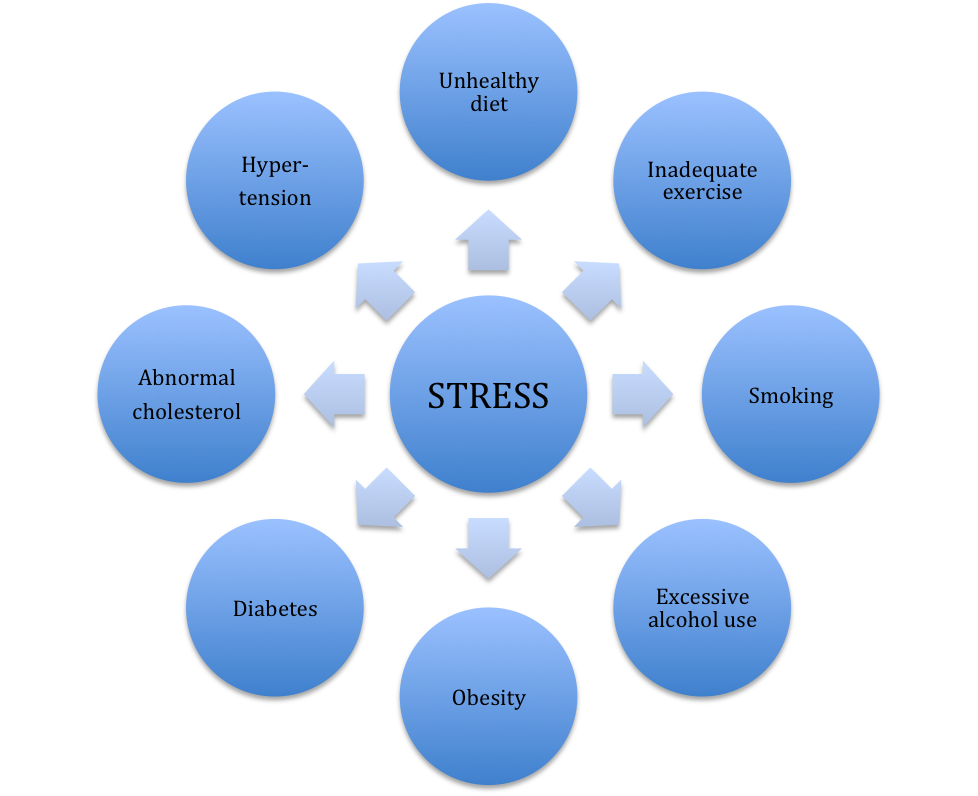As a Preventive Cardiologist, the question I get asked most often is this:
“I (or someone I know) have no bad habits and have not had any health problems in the past, but ended up with a heart attack. How come doctor?”
My immediate response is that there are 9 risk factors for serious heart and blood vessel disorders like heart attack and stroke. In fact, each of these 9 are independent risk factors which can cause disease by itself and when present in combination poses a very high risk of fatal heart disease.
The 9 cardiovascular risk factors: The Framingham (1) and the INTERHEART (2) studies are both landmark research works that have clearly identified the cardiovascular risk factors in all populations. The image below depicts the 9 risk factors that we should all be aware of and should watch out for.

A questionnaire-based survey was conducted this World Heart Day by Cardiac Wellness Institute to study the presence of behavioural risk factors for heart disease among college-going women in Chennai. Of the 554 students aged 15-30 years who responded to this survey, almost 40% reported to be chronically stressed. We have also noted a similar trend of staggeringly high rates of chronic mental stress among young corporate employees. Intensive lifestyle modification supervised by medical professionals has proven effective in changing dietary, exercise, sleep and stress-related risk factors in all age groups including young adults.
Hypertension, Diabetes and Dyslipidemia are the three silent killers which can only be identified by routine health check up. All 3 conditions often co-exist in the same individual but do not cause any symptoms leading to a very high risk of sudden death. Simple tests like blood pressure measurement and blood sugar and lipid level analysis will throw light on your risk profile. Mild variations from normal and early stage of disease can be managed with lifestyle changes alone but more severe abnormalities will require medications in addition to lifestyle changes.
Unhealthy diet, Inadequate exercise, Obesity, Mental stress along with tobacco use and alcohol abuse are the risk factors that are soaring high in our population. Spreading awareness about the ill-effects of these lifestyle choices is the first step in curbing them. The second and most crucial step is providing the right tools to help people modify their risky behaviour. Exercise training, meal planning guidelines, stress management techniques, goal-setting to become fit, and professional help to quit smoking and drinking are some ways we help individuals succeed in making these difficult but salient changes that impact their health in a very positive way.
If you have a family history of cardiovascular disease, that is your parents or siblings have had a heart attack, stroke or other cardiac problems, you need to be even more vigilant about the 9 risk factors and take all steps to lead a heart-healthy lifestyle.
Action Point 1 If you are over 40 years old and have not had a medical check yet, it is time you saw your doctor for a cardiovascular risk assessment. If you have had a doctor check up more than 2 years ago, you need to repeat one now.
Action Point 2 If you are over 20 years old and think you have 1 or more of the above risk factors, you should get a doctor’s opinion and blood examination every 5 years.
Action Point 3 If you have been taking medicines for any of the above risk factors, you need to revisit the problem along with your doctor to understand the response to medications and the need for lifestyle modification to reduce and eventually even stop medicines if all parameters are well controlled.
